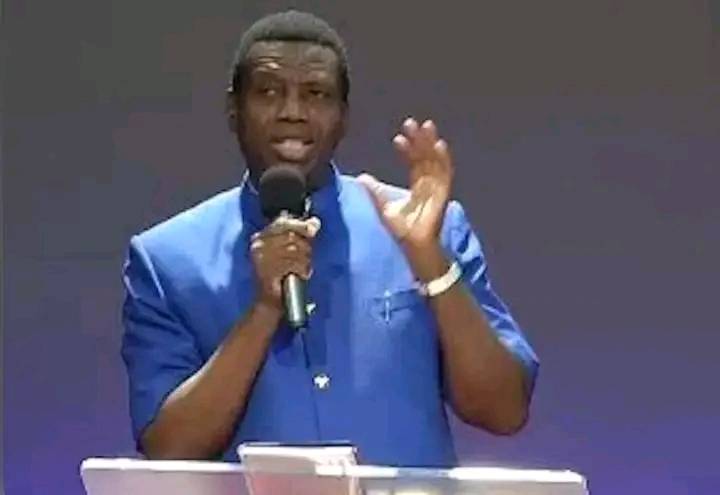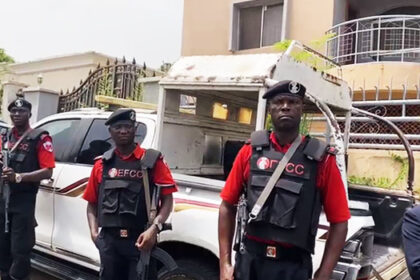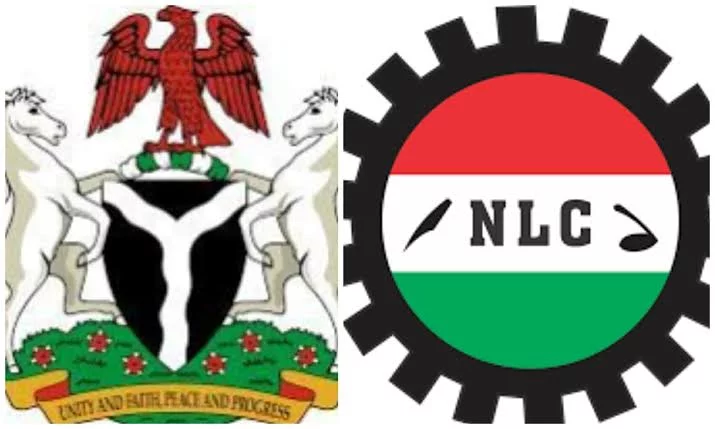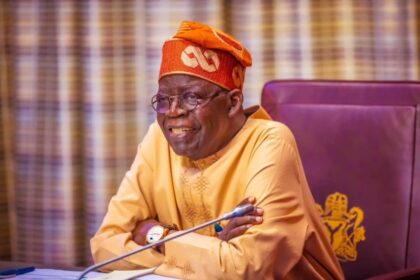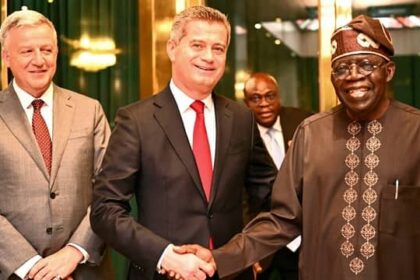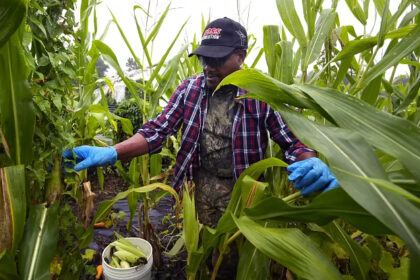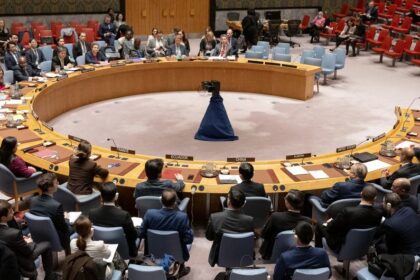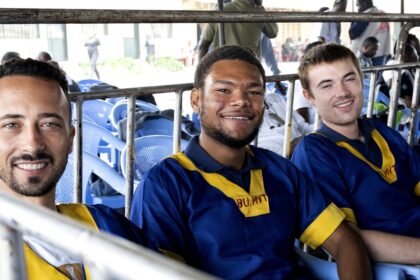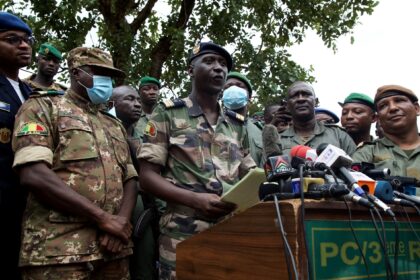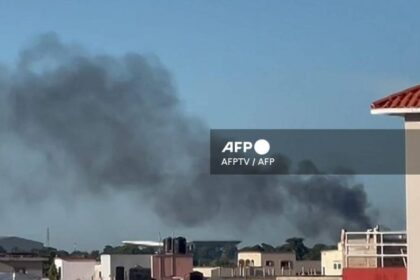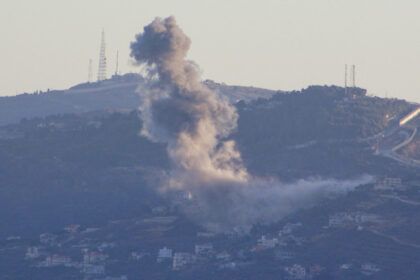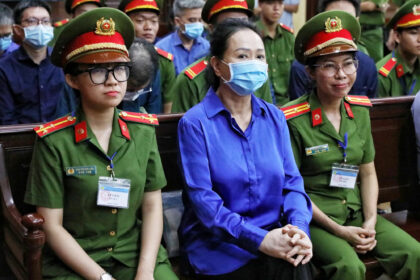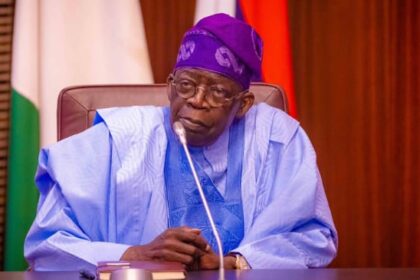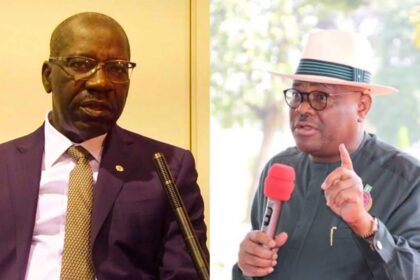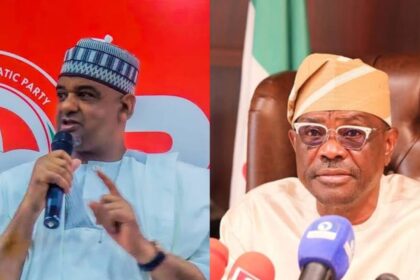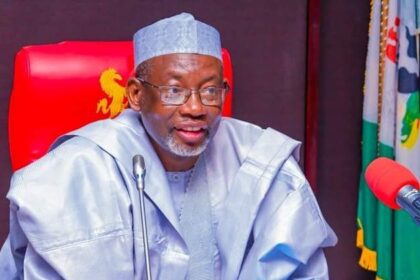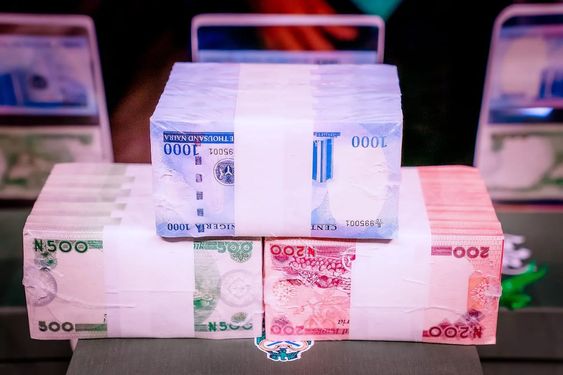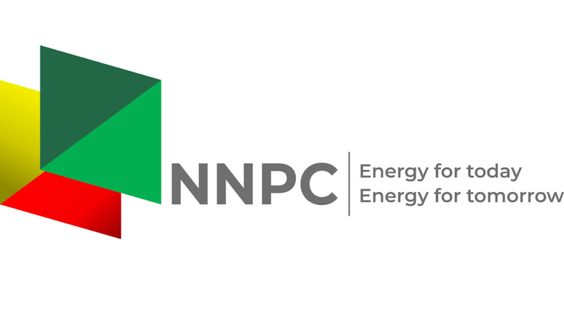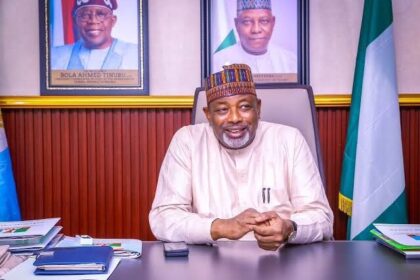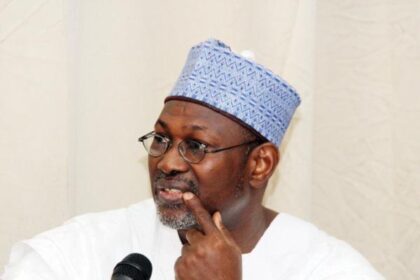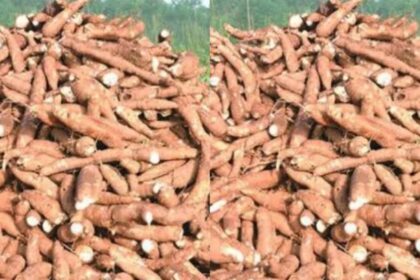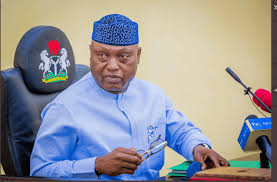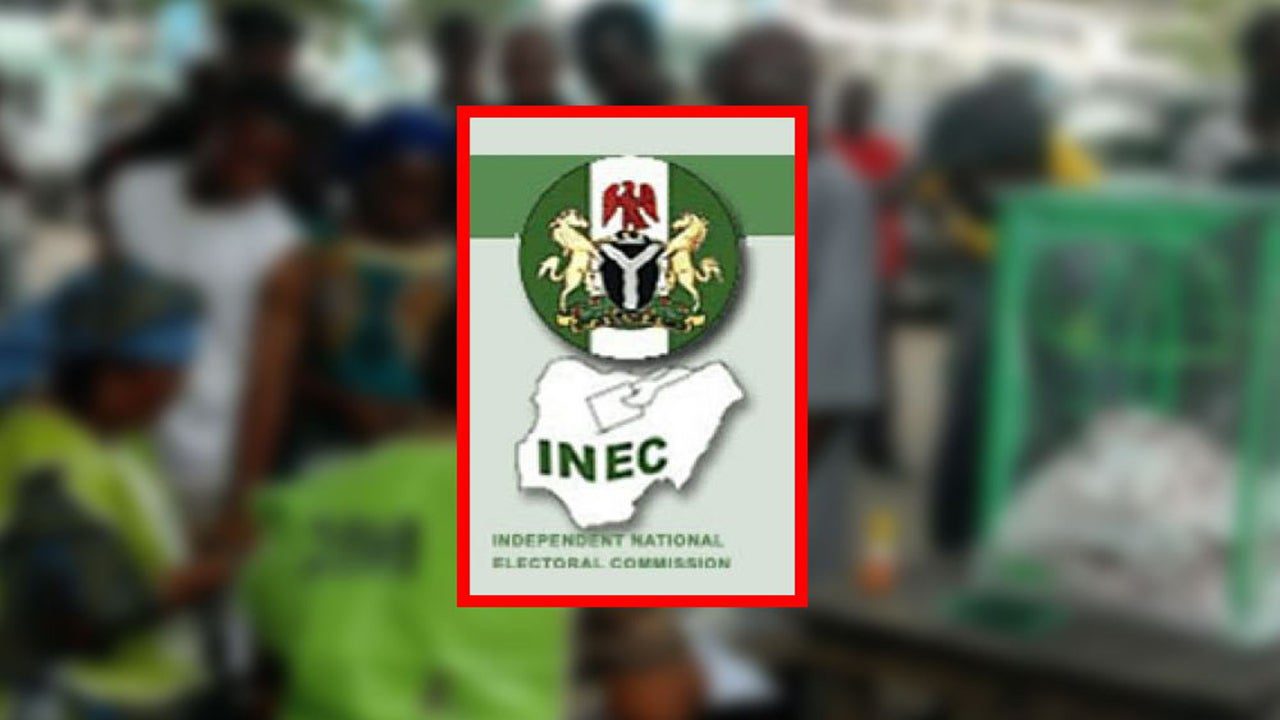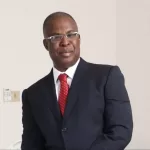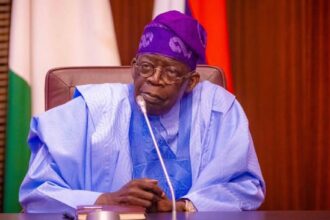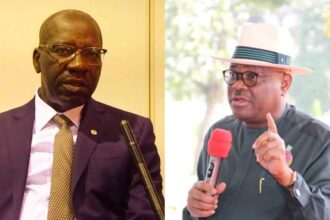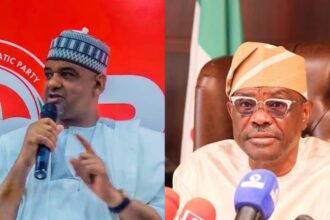A significant 70% of eligible voters may be disenfranchised from the November 11 governorship election in Bayelsa, Imo, and Kogi due to insecurity and a potential loss of faith in the electoral process, particularly in Imo state.
Approximately twenty percent of voters with Permanent Voters Cards (PVCs) took part in the previous elections based on prior experiences. Results indicate that widespread concerns about life security and the electoral process’s legitimacy may cause this to decline even more.
Security concerns are present in Bayelsa and Kogi notwithstanding a history of steadily declining election results.
For example, in the most recent presidential election, Bayelsa’s voter turnout fell by 20 percentage points, from 36.4 to 16.4%, and Kogi’s fell by 9 percentage points, from 33.6 to 24.6.
Over 5.4 million Nigerians are registered to vote in the governorship elections scheduled for November 11 in the states of Kogi, Imo, and Bayelsa, according to prior indications from INEC.
In total, there are 5,409,438 registered voters among the three states: 1,056 862 in Bayelsa State, 2,419,922 in Imo State, and 1,932,654 in Kogi State.
I think this is a more unusual case. For the general elections of 2023, the state registered over 2.42 million PVC holders, according to official statistics kept by the Independent National Electoral Commission (INEC). Out of the total, 2, 318,919 people collected PVCs, leaving 101,003 uncollected.
Just 469,685 people cast ballots in the presidential election held in February 2023 out of the 476,730 accredited voters, or around 20% of the total number of people who were expected to cast ballots in the state and obtain PVCs.
Recent research indicates that the state may only have 600,000 eligible voters remaining after the surge of insecurity in the area, of whom 300,000 (or 13% of all PVC holders) may cast a ballot to the fullest extent possible.
Due to a lack of registered voters, the electoral umpire has already ruled there will be no elections in 38 of the 4,758 polling places in Imo State. Elections would therefore be conducted in 4,720 additional state polling places.
A non-governmental human rights organisation called Alliance for Africa (AfA) revealed last week that insecurity and disinterest will drive many voters to abstain from the election, despite the commission not disclosing the impacted polling units.
“43% of the sample of Imo state citizens said they will not participate in the election,” the group reported in a report.
Residents mentioned “insecurity, as well as loss of confidence in the electioneering process and INEC as reasons for their decision” in its study, titled “The Imo state Citizens’ Charter of Demand.”
More concerning, though, is the findings of a study done last week by the International Society for Civil Liberties and Rule of Law (Intersociety), which said that only roughly 130,000 legitimate votes could be used to determine the victor of the gubernatorial contest.
The study team, working with the Coalition of Democracy and Human Rights Organisations (SBCDHROs) in the Southeast, went on to say that the approximate 300,000 voters who may cast ballots will be used to determine the number of legitimate votes.
“This projection was made after taking into account the chaos, bloodletting, and fears that severely affected the state. Of the registered voters, 1.8 million, or 65%, were uprooted and forced out of their voting areas, leaving the state with only 600,000 eligible voters, of whom 300,000 could cast ballots at most,” revealed Emeka Umegbalasi, board chairman of the society.
Umegbalasi pointed out that the situation in Imo state is similar to the Anambra governorship election in November 2021, when the victor was decided by 112,229 votes out of the 249,631 total valid ballots.
He proceeded by saying that there have been numerous killings, acts of intimidation, and terror as a result of abandoned properties in Imo.
Umeagbalasi, who voiced concerns that the INEC might use “harvesting and writing of results to determine the winner of the election,” clarified that the presumption was made in light of “the January 14, 2020 Supreme Court verdict that installed Governor Hope Uzodimma as remotely originated from harvested results from 311 polling units in the state where voting was either cancelled due to widespread violence and egregious misconduct by the state’s April 2019 governors.”
But he went on to say that the organisations wanted to protect state voters and restore the integrity of the voting booth, emphasising that the winner should be decided by “one man, one vote.”
In addition to guaranteeing their security and safety, subversive elements within the security forces, including deployed soldiers, police, and Ebubeagu militia, must be stopped from wreaking more havoc on the voting routes, environments, and residences, as well as sensitive voting materials, including result sheets.
In Yenagoa, the state capital of Bayelsa State, there are worries about voter apathy because it seems that most citizens have lost interest in casting ballots, especially in light of the results of the most recent general elections and the state’s most recent gubernatorial election.
In Nembe and Southern Ijaw Local Councils, political actors in the state use thugs and miscreants to scare away voters so they can have the pitch to themselves. There are also worries that some may stay away out of fear of violence and threats by the two major political parties, the PDP and the APC.
The PDP and APC had already voiced concerns about attempts to rig the poll through violence and intimidation.
The attacks and killings that have occurred in Opu-Nembe will have an impact on Saturday’s voter turnout.
While election-related violence has occurred in some areas of the state, it has not reached the same level as it did in the previous election. However, the prospect of violence would influence voter turnout and most likely the poll’s final result.
The two leading candidates and their respective political parties, Governor Douye Diri of the PDP and former governor and recent minister of state for petroleum resources Timipre Sylva of the APC, have strongholds in Basambiri, Opu-Nembe, and other areas.
Kogi is not exempt from concerns either. The opposition parties, PDP, ADC, and SDP, have accused the ruling APC of using measures to stifle the opposition and enlist foreign thugs to rig the poll ahead of Saturday’s vote. The Kogi State Government ordered hotel owners to reserve every room in the state’s 21 local government areas for November 4–12, but the parties opposed to the decree last week.
The opposition asserted that it had solid intelligence that Governor Yahaya Bello planned to utilise the hotel rooms as a base of operations for foreign militants under his direction, who would wreak havoc prior to and during the elections, hence raising major security issues.
At a press conference in Abuja, PDP candidate Dino Melaye stated that his campaign council had intelligence indicating that the thugs will be transported into Kogi State from Lagos, Ogun, and Oyo States.
He added that in order to make it difficult for the locals to identify the thugs, they had been given fictitious police and army uniforms.
“We are also aware that the governor’s directive is intended to disrupt the electoral process, as it will prevent INEC, election officials, security personnel, and local and international election observers from accessing hotel accommodation during this crucial period,” stated Shola Adebola, speaking on behalf of the ADC campaign.
Public affairs analyst Jeremiah Uzoma expressed concerns about the development, saying that Imo state’s predicament has been made worse by the unresolved 2019 governorship issue and the results of the March 2023 State House of Assembly elections.
He continued by saying that the majority of people were dissatisfied with how the Supreme Court decided the 2019 governorship race and that the court had continued to drag out its case against the All Progressives Congress (APC), the actual candidate in the race, three years after it was brought before it.
The subject was postponed until December 5 by the supreme court when it was finally scheduled for hearing last week. The governorship contest would have been over and the victor declared by now.
“Who will be eager to take part in an election when the details of the last one are still unknown? The incumbent governor, who placed fourth in the 2019 election according to INEC data, was swiftly proclaimed the actual victor by the Supreme Court. However, the court has delayed ruling on a petition that was brought before it to identify the APC’s legitimate candidate.
“The PDP and APGA have two cases pending in court about that issue. Following the court’s disqualification of Uche Nwosu, the party’s nominee for governor, they focused on the genuine candidate. The candidate was not declared by that court.
“Recall how the court verified 388 polling place results—which INEC was unaware of—to ascertain the election’s victor. Regardless of the legality of the Supreme Court’s decision, the fact that the person who benefited from it is still in office and getting ready for a new election while a case against him is still ongoing after three years is enough to undermine public faith in the system. This means that whoever is favoured by the ruling class will be proclaimed the winner, regardless of how much people strive to honour the election.
That’s a single plank. The final state House of Assembly election of the year is the second plank. Despite several protests from the public, the exercise’s results awarded the APC 27 Assembly seats, even those from places where no election was held. As of right now, nothing has done to void the results.
People are therefore concerned that they could be used to justify an unsatisfactory procedure. What is the purpose of casting a ballot on election day if it is handy to declare results that the nation’s courts cannot overturn? stated Uzoma.
The state’s electoral power has decreased in the last few elections, according to the findings. According to a recent report by the research group Dataphyte, the percentage of registered voters who cast ballots on election day has continuously been lower than 50% in the previous governorship elections, primarily the last three.
However, INEC has stated that it is making every effort to reduce voter stress and foster trust in the electoral process by ensuring that the results are meaningful.
It said that seventeen political parties would run in the Imo State election. It urged locals to honour the exercise by casting their ballots on that day, and it guaranteed that the results would be sent electronically. It also added that it has deployed the necessary equipment to ensure a smooth exercise.
INEC further guaranteed that “several lapses recorded in the previous elections will be corrected” given the degree of security it has mobilised for the state’s poll.

